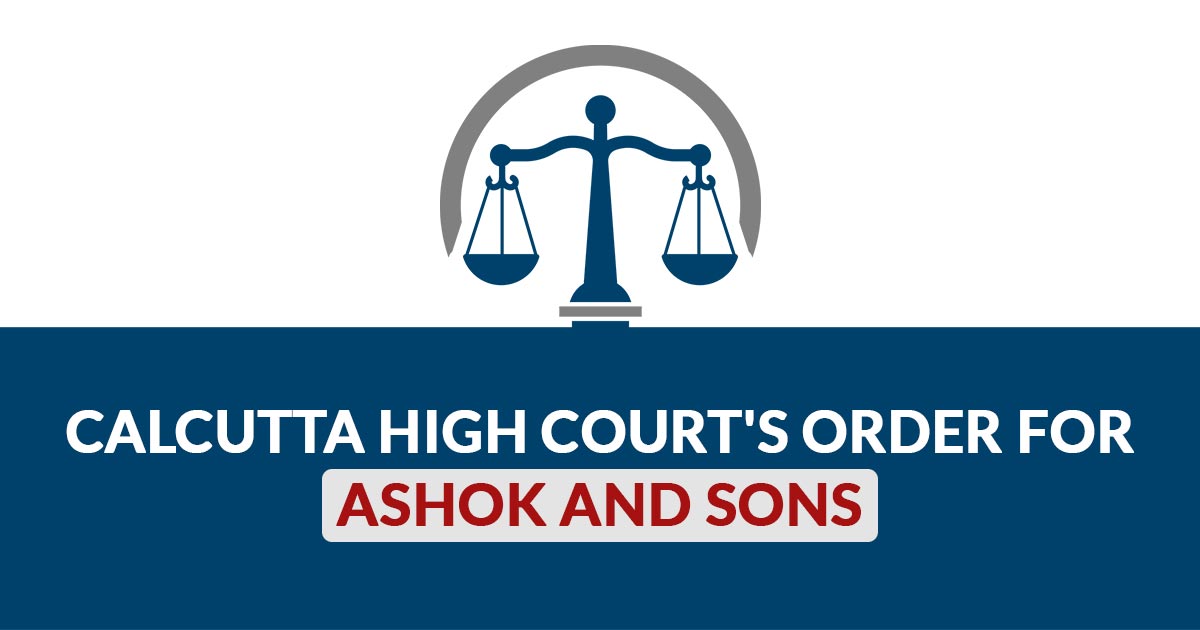
Under Section 129 the GST department was legally allowed to charge a penalty, the Calcutta High court stated, including the SGST since the goods uncovered to be detained in the state’s territory.
The bench of Justice Bibek Chaudhuri revealed the statutory authority can detain the vehicle and seize the goods as they are empowered under Section 129 of the Central Goods and Services Tax Act, 2017. Only on the penalty payment identical to 200% of the tax liability to be paid, the goods shall get released.
The applicant is the manufacturer or supplier of milestone bitumen emulsion and corresponding products. Under the GST act, the applicant is a registered assessee duly enrolled with the precise GSTIN number. The applicant had supplied 158 drums of bitumen emulsion, each containing 200 kg, for a total of approximately 31,600 kg, for the furtherance of business, with invoice number 555/2021-22 on March 5, 2022, producing an outcome in a proper E-Way bill on March 5, 2022, which was valid from Begusarai to Guwahati till March 9, 2022.
At an 18% rate, the applicant has paid the IGST to transport the goods that amount to Rs 2,58,804. On the IGST payment, for the transportation of the goods, an e-way bill was generated from Begusarai to Guwahati.
A breakdown interrupted the carriage of the goods during transportation, within the jurisdiction of Jalpaiguri the same was detained in a motor vehicle garage. A state tax officer intercept the vehicle dated 12th March 2022 while it was uncovered that the GST e-way bill for the consignment would have lapsed during the examination.
SGST at the rate of Rs. 2,58,804 and an SGST penalty of Rs. 7,18,900 and ordered the applicant to pay the tax with interest was levied by the Assistant Commissioner, Bureau of Investigation Headquarters. The applicant would need to file the tax for releasing the vehicle and buying the vehicle however chose the appeal before the appellate authority. On 23rd August 2022 the petition was dismissed in an order.
There was no intent to evade the tax, applicants stated. On the value of the goods he had filed the IGST at an 18% rate and procured a GST E-Way bill. The applicant was in no control of the mechanical issue with the truck.
Any SGST or fine could not be levied by the respondent authority due to the lapse of the e-way bill. As the vehicle was not able to move because of the breakdown in the territory of the State of West Bengal, the applicant does not need to file the tax.
For exceeding 3 days, the applicant’s consignment was found lying within the territory of the state, the department stated. The e-way bill would have lapsed. The vehicle would have suffered from the breakdown, said the driver. He does unable to produce a proper document the support his contention.
When the goods vehicle would get allegedly secure a mechanical defect then the applicant would have the choice to extend the e-way bill validity. For the extension of the e-way bill, the applicant does not take any method.
During dismissing the petition, the court sustained the penalty imposition.
| Case Title | Ashok and Sons (HUF) vs Joint Commissioner |
| Citation | WPA 190 of 2023 |
| Date | 06.02.2023 |
| Petitioner | Mr. Jagriti Mishra, Adv., Mr. Subham Gupta, Adv., Mr. Debayan Goswami, Adv., Mr. Reshab Kumar, Adv |
| State | Mr. Subir Kumar Saha, Adv., Mr. Bikramaditya Ghosh, Adv |
| Calcutta High Court | Read Order |